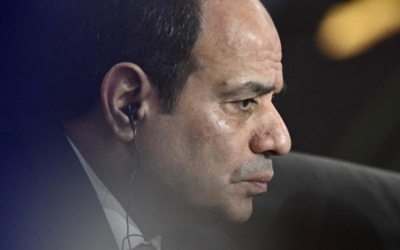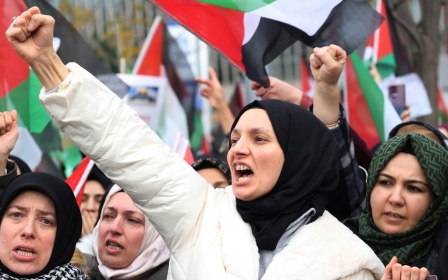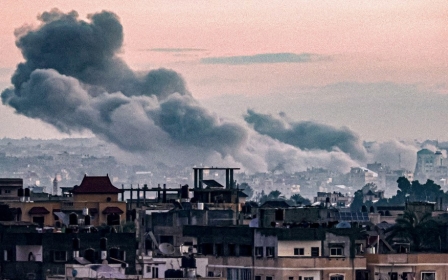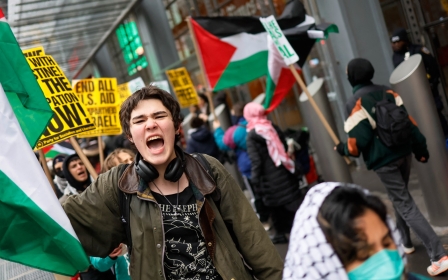After ICJ rule, will Egypt end its complicity with Israel starving Gaza?
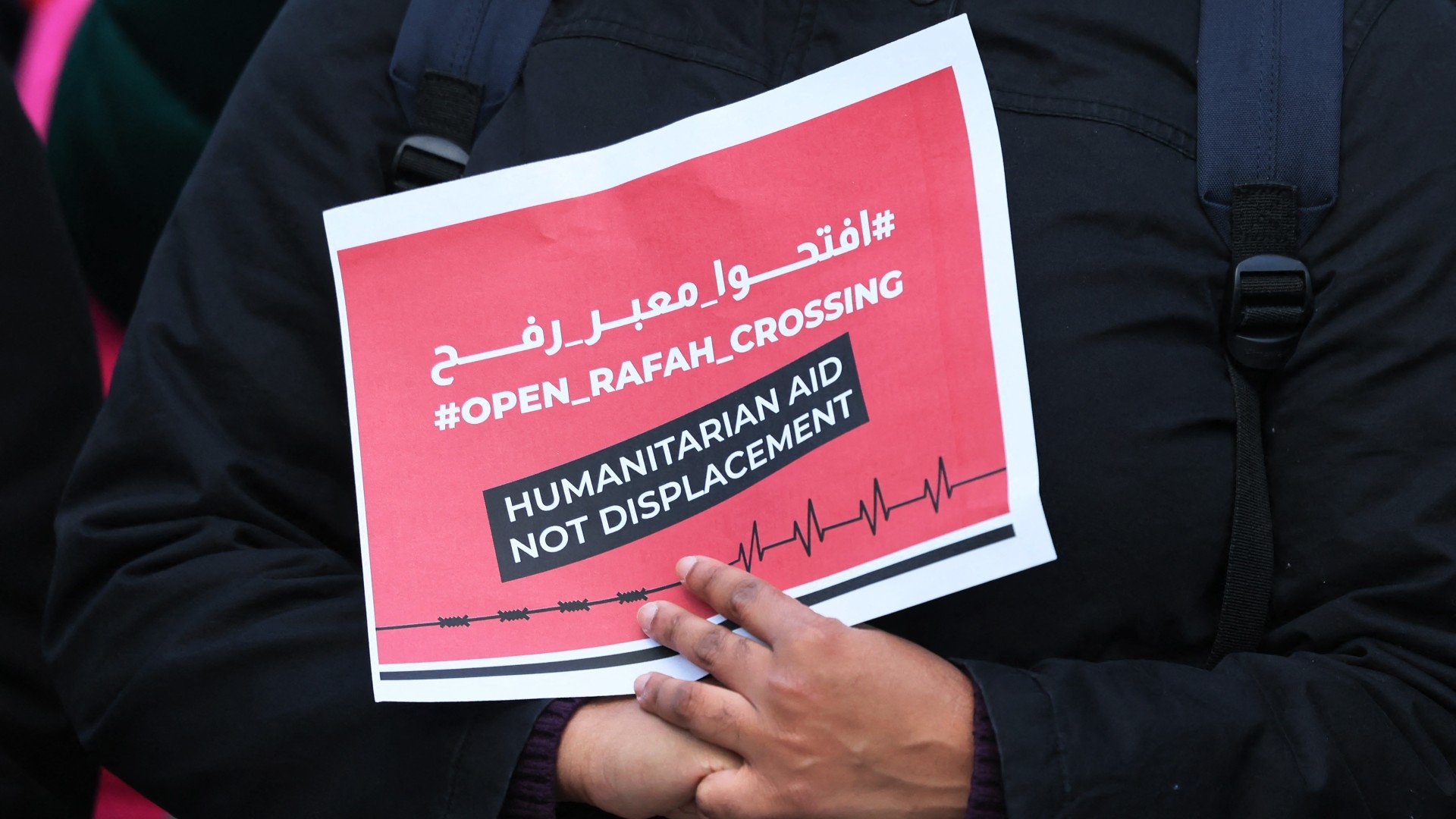
After quoting various testimonies by chiefs of the United Nations detailing the magnitude of the
humanitarian catastrophe in the Gaza Strip, the International Court of Justice on Friday laid out its ruling in the case brought by South Africa against Israel.
The ruling demanded provisional measures to be immediately taken by Israel, including a lifting of the siege on Gaza’s people. "Israel must take immediate and effective measures to enable the provision of urgently needed basic services and humanitarian assistance to address the adverse conditions of life faced by the Palestinians in the Gaza Strip," said the ICJ ruling.
Since the beginning of the war, Israel’s government and military officials have refused to accept responsibility for the unfolding humanitarian crisis and widespread hunger and disease in Gaza, at times denied the crisis altogether, and in one instance threw the blame on Egypt.
During a three-hour oral response to South Africa’s accusations of genocidal conduct in the Gaza Strip, Israel’s legal representatives made a statement that sparked popular anger across Egypt, noting that “access to Gaza from Egypt is under the control of Egypt”. The anger was directed equally at Israel’s deliberate starvation of Gaza, and Egypt’s complicity.
New MEE newsletter: Jerusalem Dispatch
Sign up to get the latest insights and analysis on Israel-Palestine, alongside Turkey Unpacked and other MEE newsletters
This statement, referencing the Rafah crossing that connects the Egyptian Sinai with Gaza - the only border crossing not under Israel’s physical military control - was made along with numerous others to deny Israel’s responsibility for the starvation of Gaza’s 2.3 million people. It directly blamed Egypt for blocking aid to Gaza, or as many Egyptians said on social media: “Israel threw Egypt under the bus.”
Since Israel’s defence minister declared a full siege on Gaza on 9 October, Egypt has succumbed to Israeli pressure to keep the Rafah crossing closed, while submitting to Israeli “inspections” of all aid shipments. This has effectively prevented Egypt from directly coordinating aid with Palestinian authorities in Gaza.
Israel’s inspection process for international aid is at the core of Gaza’s escalating humanitarian crisis, experts say.
Israel has applied the same stifling system to all types of aid, including food, medicine, fuel and potable water.
“The main reason is that the inspection procedure remains cumbersome and that many goods are rejected based on their dual-use potential,” Lahib Higel, a senior analyst at the International Crisis Group, told Middle East Eye. These include “any type of metal materials that can be reused as components for weapons”.
But Israel’s claim that it only bans dual-use goods has proven to be a farce. It maintains unchallenged control over what goes into Gaza and when. Deborah Harrington, a British doctor who recently returned from Gaza, described in her chilling account to CNN how a truck carrying baby diapers was rejected by Israeli authorities.
Since the start of the war, Israel has applied the same stifling system to all types of aid, including food, medicine, fuel and potable water.
Deliberate deprivation
Last week, Qatar announced that it had successfully brokered an agreement between Hamas and Israel to allow shipments of medicine and other aid into Gaza, in return for delivering medicine to the hostages being held by Hamas. This is itself evidence that Israel is engaging in a strategy of deliberate deprivation, allowing aid to reach the territory on the basis of its own strategy and calculations. It is a classic case of weaponising hunger and disease.
This aid, Qatar noted, would transit through Egypt. The Egyptian government has “categorically denied” Israel’s assertions that Cairo plays any role in preventing the entry of humanitarian aid into Gaza via Rafah.
Follow Middle East Eye's live coverage of the Israel-Palestine war
But Ramy Shaath, a prominent Palestinian-Egyptian activist who was stripped of his Egyptian citizenship after spending more than two years in prison, says Egypt is “100 percent complicit in this crisis”. Shaath describes it as a continuation of President Abdel Fattah el-Sisi’s policies towards Gaza since 2013, which have kept the territory fully “under Israeli control”.
“Egypt and its submission is enabling Israel, because Rafah is the only border that allows Israel to say we don’t blockade Gaza,” Shaath told MEE. “But the truth is, Egypt’s border is still under Israeli control.”
Israel's stunt at the ICJ was 'a cunning move to try to shift the blame on another party'
His position is bolstered by comparing Egypt’s reaction today to Cairo’s stance on the Israel-Gaza war in 2012, one year before Sisi took power in a military coup that toppled former President Mohamed Morsi. Since then, there has been a drastic transformation in Egypt’s position towards Gaza.
In 2012, Morsi dispatched his prime minister to Gaza, summoned Egypt’s ambassador from Tel Aviv, and allowed a delegation of hundreds of Egyptians into Gaza to show solidarity with the Palestinian population, while Rafah remained open for aid and travellers.
Additional questions have arisen over Egypt’s position after Israel’s legal team told the International Court of Justice (ICJ) this month that “a joint operations room involving Israel, Egypt, the United States and the United Nations operates daily to solve, in real-time, logistical difficulties”. This was yet another indication of Egypt’s unwillingness, rather than inability, to confront Israel’s deliberate starvation of Palestinians in Gaza.
Egypt's complicity
During his first live appearance since the beginning of the war, the Egyptian President Abdel Fattah el-Sisi mentioned the humanitarian catastrophe in Gaza. However, Sisi’s remarks weren’t in defence of Gaza’s starving population or in condemnation of Israel’s siege, but a blatant attempt to deny that Egypt is suffering under a staggering economic crisis caused by his policies over the past decade.
“God sent us a live example of people who we cannot send food to… over the past four months,” said Sisi. This statement was viewed by Egyptians as yet another indirect message giving Egyptians an ultimatum: tolerate my rule and economic policies or starve like Gaza.
Meanwhile, Egypt’s transformation of its easternmost region bordering Gaza over the past decade, with unchallenged military and security control, makes it fully capable of effectively overseeing and executing the required operations to meet Gaza’s humanitarian needs.
The arrivals of world leaders, UN chiefs and heads of international organisations at the Rafah crossing have highlighted the magnitude of Gaza’s crisis and the need for immediate action. But the Sisi regime has shown little-to-no will to take any direct action to rescue Gaza, or to pressure Israel to change its policy of weaponising hunger and disease.
According to Hossam el-Hamalawy, an Egyptian scholar and expert on political and security affairs, “there is no doubt Israel is engaged in ethnic cleansing of Palestinians”. Numerous statements by top Israeli government and military officials have made clear that the target is “Gaza’s entire population, not just Hamas”, Hamalawy told MEE.
Israel’s stunt at the ICJ was “a cunning move to try to shift the blame on another party”, Hamalawy said. But he maintained that the Egyptian regime is complicit in blocking aid, noting that it has done so for years. Past wars, however, have also proven that Egypt is capable - when it wants to do so - of delivering aid without “waiting for a green light from Israel”.
Hamalawy added: “[Egypt’s excuse] that they cannot guarantee the safety of aid caravans once they enter Gaza is a joke.”
With the ruling at the Hague demanding that Israel enable immediate access of aid to Gaza, Egypt cannot duck its role in the siege.
The views expressed in this article belong to the author and do not necessarily reflect the editorial policy of Middle East Eye.
Middle East Eye delivers independent and unrivalled coverage and analysis of the Middle East, North Africa and beyond. To learn more about republishing this content and the associated fees, please fill out this form. More about MEE can be found here.



